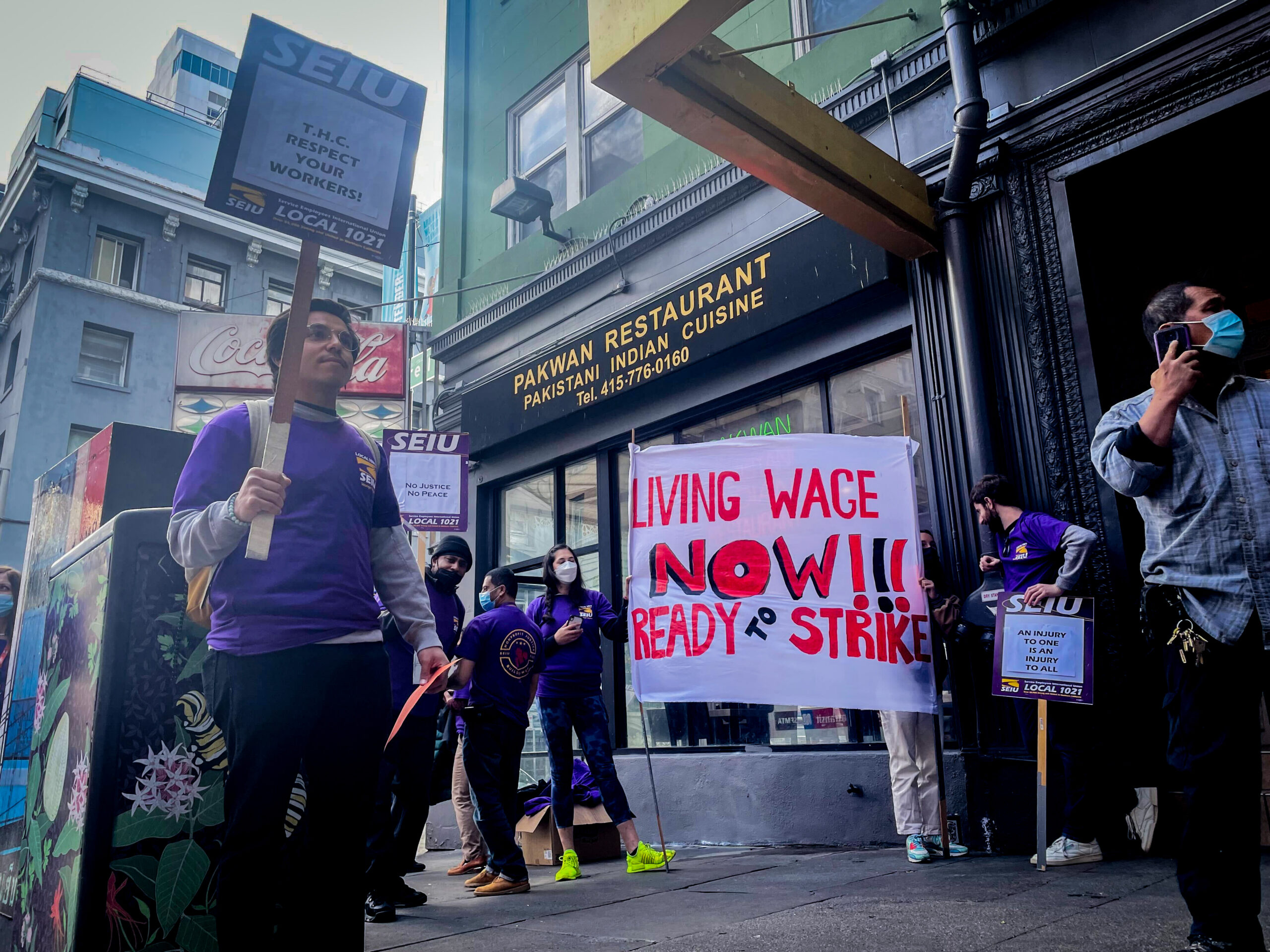In the Tenderloin on Wednesday, Mayor London Breed celebrated the opening of 80 new units of permanent supportive housing—a linchpin of her plan to address the city’s homelessness crisis. Outside, however, a picket line of workers decried low pay and poor conditions at some of those very facilities.
The Garland hotel, located at 505 O’Farrell St. and operated by the Tenderloin Housing Clinic, adds to the city’s growing portfolio of permanent supportive housing. The nonprofit Tenderloin Housing Clinic is among the largest providers of low-cost housing in San Francisco, with 24 properties in its portfolio. The city will begin moving formerly homeless residents from the Baldwin hotel, which is set to convert to a non-congregate shelter, into the Garland hotel next week.
Breed hailed the new facility for bringing the city “80 units closer to addressing chronic homelessness.”
But case managers, clerks and others employed by the Tenderloin Housing Clinic say their wages haven’t nearly kept pace with either the cost of living or the workload, with many workers earning in the range of $33,000 to $40,000 per year, according to organizers. The Tenderloin Housing Clinic is engaged in a collective bargaining agreement with the Service Employees International Union, which will set the rate of pay for the nonprofit’s employees.
“The supportive housing system, as it’s currently designed, is not working,” said Evan Oravec, an organizer for Tenderloin Housing Clinic. “We’ve seen the effect of low wages…it’s hard to keep the buildings running, and so we’re [asking] for this system to truly uphold its values and stabilize and support people.”
Oravec and others at the protest, including case managers at other Tenderloin Housing Clinic facilities, described rodent infestations and other dangerous conditions on-site as well as long commutes, leading to high turnover. The organizers are asking for an immediate $5 raise for all staff.
Randy Shaw, executive director of Tenderloin Housing Clinic, told The Standard that he has advocated for workers to receive higher wages, but blamed a lack of city funding. He said that the low wages are making it increasingly difficult for him to hire workers, and said he had attempted to engage in the budget process.
A database maintained by the Controller’s office lists $41 million in contracts with Tenderloin Housing Clinic for the fiscal year 2022.
“We don’t control the budget,” Shaw said. “All our workers are city-funded 100%.”
Meanwhile, Breed acknowledged and thanked the protesting workers in her remarks, but did not make any specific commitments regarding any wage increases.
“I know it hasn’t been easy…I hear your requests and I’m taking them very seriously,” Breed said.
